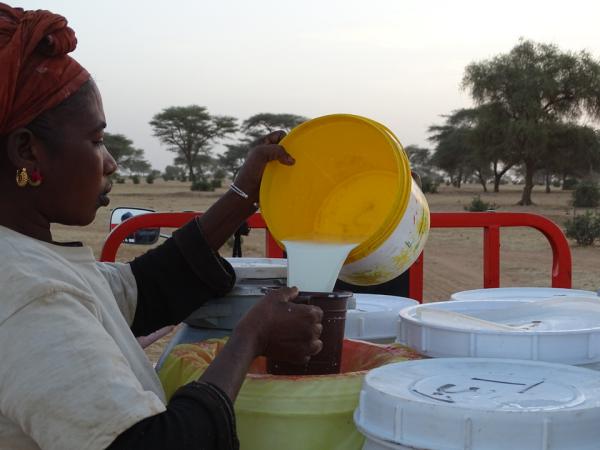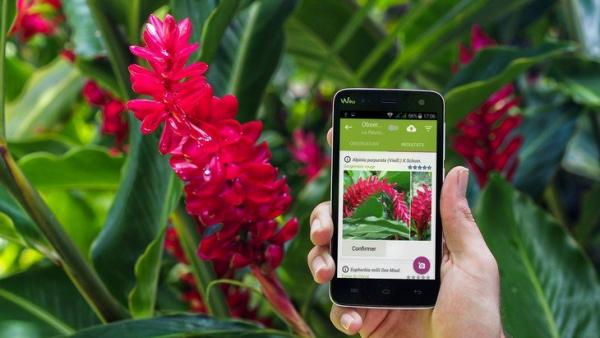Some 75% of emerging infectious diseases in humans come from animals. That is why integrated, so-called “One Health” approaches acknowledge the interdependence of ecosystem, plant, animal and human health. Such approaches are built on collaboration between scientific disciplines and sectors of activity, and foster the integration of knowledge held on various levels: from a local level, by involving local people, to a national level, by involving doctors, veterinary services, ecologists, crop and livestock farmers, national parks, public health authorities, etc. It is even more crucial to adopt such approaches for research and epidemiological monitoring operations in vulnerable island situations. Many examples bear this out, such as the Aedes albopictus mosquito, which was transported in tyres from Southeast Asia and was the vector in the 2006 Chikungunya epidemic in the Indian Ocean.
Working hand in hand with players on the ground and striving to connect them with their neighbours, CIRAD has helped to build two major health networks: CaribVET, led from Guadeloupe, and One Health-Indian Ocean (One Health-OI), from Réunion. Their consolidation over almost 15 years and the massive commitment made by their members have enabled these platforms to make the One Health concept an operational reality on the ground.
Veterinarians, researchers and doctors working and making decisions together
Decisions within CaribVET are made by a steering committee with 48 members: heads of veterinary services in 34 countries and territories and representatives of agricultural universities and research centres in the region and of international bodies (OIE, FAO, WHO, etc.). After each meeting, the committee’s decisions are forwarded to the authorities in the member States, with recommendations of prevention or border control measures if necessary. The committee also oversees scientific research operations by working groups or partner projects.
The One Health-OI platform associates veterinary and human health services in the five Indian Ocean Commission countries, research centres such as IPM (Institut Pasteur Madagascar), FOFIFA (National Centre of Applied Research and Rural Development, Madagascar) and INRAPE (Institut national de la recherche pour l’agriculture, la pêche et l’environnement, Comoros), the Centre d’infectiologie Charles Mérieux, the Réunion teaching hospital and the University of Réunion. It covers research topics that are a priority for health managers, backing up the SEGA One Health operational network in charge of monitoring and control of human and animal infectious diseases. Its research activities are split between five working groups (monitoring, risk analysis, resistance, control, and training).
The two platforms have demonstrated the strength of their organization and leadership, and their ability to work efficiently within regional partnerships, including in crisis situations (health crises, natural disasters).
As things stand, not much is known about the veterinary profession in Madagascar, and animal health operations are under-funded. Humanitarian aid, which centres on human diseases, is a good example of this. However, if we want to eradicate rabies, for instance, we need to work on canines and felines rather than on humans. We are increasingly working with the Institut Pasteur in Madagascar, and that is a step in the right direction. Thanks to the One Health approach, the authorities now understand that veterinary and human health services need to work together. Our role is to convince policymakers in Madagascar to apply the results of our network’s studies.
Vincent Michel Rakotoharinome
epidemiological research officer for Madagascar’s central veterinary services
Building monitoring and diagnosis capacity in partner countries
From disease diagnosis to renewed OIE recognition of disease-free status, through managing disease clusters by means of slaughtering animals, restricting animal and human movements, ring vaccination and herd immunity monitoring, the two health networks have helped to introduce integrated epidemic management. This has been a long-term undertaking for their members, who have succeeded in obtaining a commitment on the part of the authorities in the partner countries to base decisions on the networks’ recommendations. Having succeeded in changing collective practices on a supranational level and thus guaranteeing better integrated health management, the networks are now seen as indispensable for coordinating, rather than duplicating, animal health and public veterinary health programmes.
The training courses organized by the networks have served to build local monitoring and diagnosis capacity. Over ten years, hundreds of laboratory technicians from the Caribbean have been trained and certified to prepare and despatch samples to reference laboratories, in line with International Air Transport Association (IATA) regulations.
The impact and scope of CaribVET’s cross-border operations is one of its main assets. Countries in the region lack the necessary resources to coordinate animal health programmes beyond their borders. The network has significantly improved communication and trust among national veterinary services. Without that trust, it would be much more difficult to build cross-border animal health initiatives. Despite the difficulty of finding reliable resources and the current logistical constraints resulting from Covid-19, CaribVET has always managed to maintain a good level of interaction and activities. The network truly embodies the One Health approach. Bringing skilled professionals together and encouraging them to work with one another is vital for the success of plant, animal and human health projects.
Mario Ambrosino
Former US Department of Agriculture (USDA) animal and plant health inspection service officer for the Caribbean region
Anticipating crises and taking action when necessary
The various avian influenza operations coordinated by CaribVET have helped prevent the disease entering the Caribbean region, despite the historic epizootic flareup in the US in 2015-2016. Measures were quickly taken to step up on-farm biosecurity and border controls. Activities within the network and its projects were redirected to avian influenza, using existing resources (around $ 850 000) for risk mapping, emergency plans, diagnosis and risk communication. Countries were provided with a monitoring guide to enable them to draw up their own plans, and farmers with checklists to protect their flocks. This strategy was subsequently assessed in order to pinpoint and implement potential improvements.
Among other things, the One Health Indian Ocean platform has supported control of foot-and-mouth epizootics in Rodrigues-Mauritius and the Comoros, again in association with the SEGA-OH operational network led by the Indian Ocean Commission and funded by AFD. It also played a key role in managing the 2019 Rift Valley fever outbreak in Mayotte. A set of tools was developed, including a rapid diagnostic test. The platform’s research into these diseases has been used by health managers in its member countries.
CaribVET and One Health Indian Ocean still have many plans: setting up joint quarantine stations, providing biosecurity or leadership training, stepping up collaborative research, and so on. The networks have done a colossal amount of work over more than ten years to coordinate and strengthen trust between stakeholders with the aim of sharing information more effectively, and have helped to change how the various territories view health, by introducing the One Health approach.
The SEGA One Health Indian Ocean network, which was prompted by the threat of human epidemics in the region (chikungunya, measles), has enabled the establishment of a health monitoring unit for the Indian Ocean, to coordinate and support member States in terms of epidemic management. The network has made a major contribution as regards how joint monitoring, diagnosis, prevention and response operations are coordinated. It has become a vital forum for exchanges between health system professionals, research organizations in member States, and training establishments. The fact that the network’s research operations centre on human and animal health monitoring ensures better epidemic control.
Youssouf Ousseni Moutroifi
Head of veterinary services at the Comoros Department of Livestock and Comoros delegate to the OIE
























.jpg)


